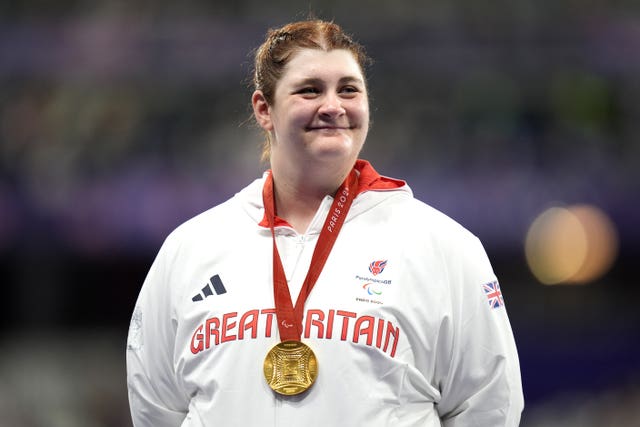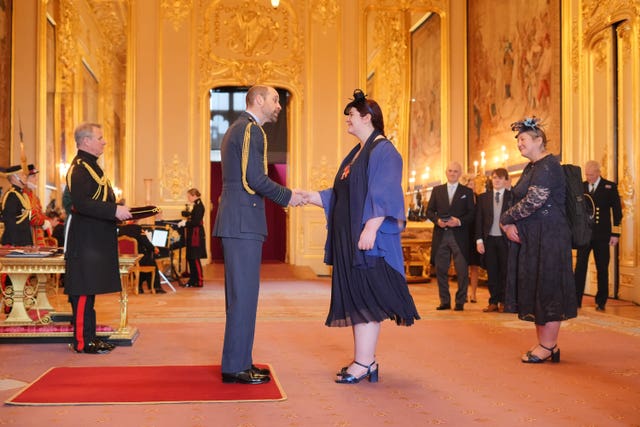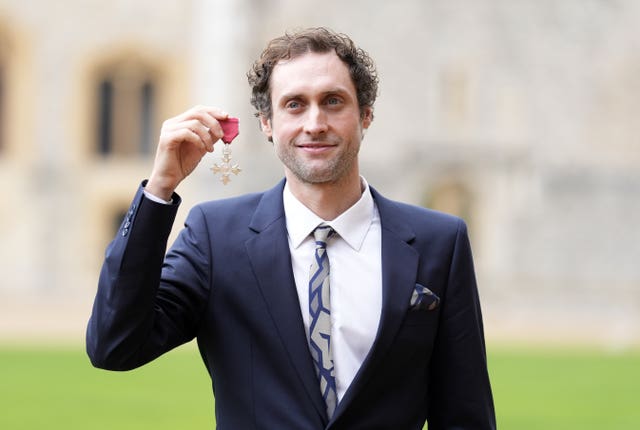A Paralympics champion who won gold at the 2024 Paris Games said receiving an honour at Windsor Castle “tops” breaking a world record.
Track and field athlete Sabrina Fortune, who won the gold medal in shot put with a world record of 15.12 metres last summer, was made an MBE in the King’s New Year Honours 2025.
The 27-year-old, who attended an investiture ceremony at Windsor Castle on Wednesday to receive the honour from the Prince of Wales, told the PA news agency: “An MBE is such an incredible honour – so is having a world record behind a name, really.
“But I think MBE really tops it just a bit.”

“And then you can build on it, and I think that’s just what pushes it over.”
Ms Fortune, from Wales, was rewarded for services to athletics.
She suffers from speech dyspraxia, a condition which affects her ability to communicate and meant she struggled to speak for many years.
“I was a kid who was told I would never amount to anything,” she said.

Ms Fortune said: “I saw that medal and I thought, I want one.”
Fellow Paralympian David Ellis, 38, a visually impaired athlete who won gold in the men’s paratriathlon alongside guide Luke Pollard, was also honoured at Windsor Castle on Wednesday.
Speaking after the ceremony, the athlete said William had asked about his experience swimming in the Seine during the Games after the Paris events were postponed by 24 hours due to the poor water quality of the river.
Smiling, Mr Ellis told PA: “It’s probably a good thing I couldn’t see it (the water).”

He said: “A lot of people with acquired disabilities will first tend to think ‘Oh, I can’t do that anymore…’.
“But you will find that there are actually other ways you can practise your sport, whether you need to use a guide, prosthetics, or something else.”
He added: “There are so many sports you can try – and the social aspect is also very important.”






